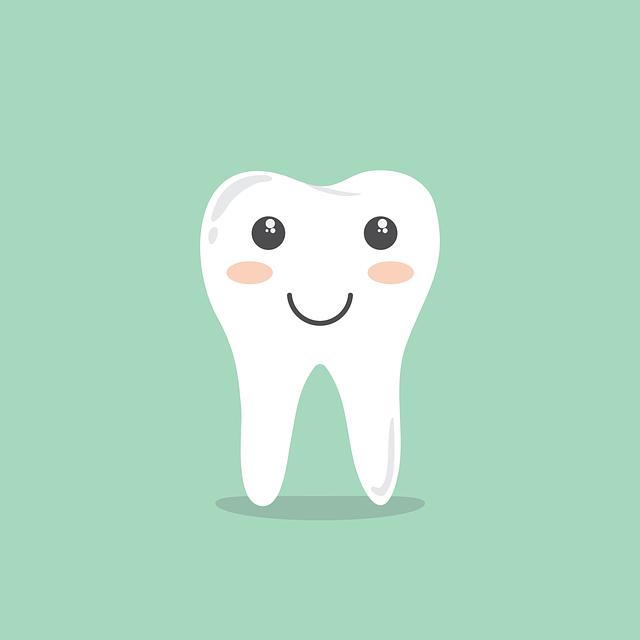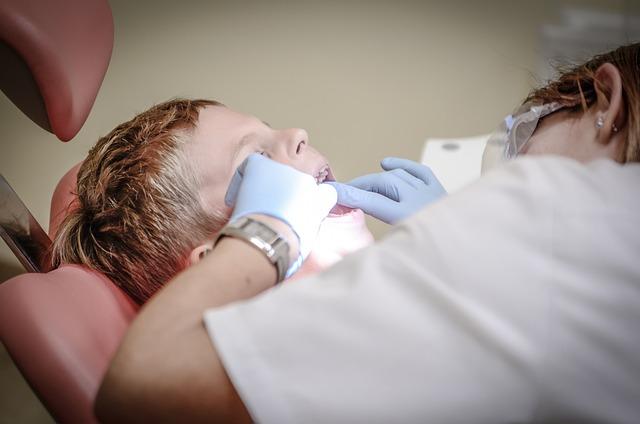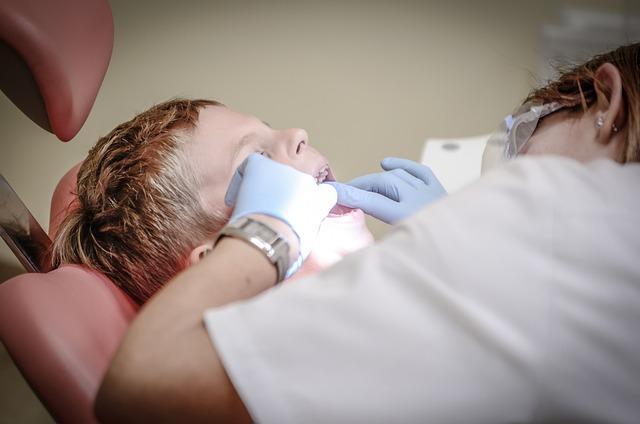Does Salt Water Whiten Your Teeth: Truth Revealed
Have you ever wondered if salt water can truly whiten your teeth? With countless home remedies circulating online, it’s easy to get lost in a sea of conflicting information. But fear not, as we dive deep into this topic, we’ll separate fact from fiction and reveal the truth about the whitening powers of salt water. So, sit back, relax, and let’s explore the science behind this age-old belief, once and for all.
1. The Science Behind Teeth Whitening: Exploring the Potential of Salt Water
Teeth whitening has become a popular trend among those seeking a brighter, more confident smile. While there are numerous methods and products available, one intriguing option that has recently gained attention is salt water. Yes, you read it right – salt water. But how exactly does it work and what potential does it hold? Let’s delve into the science behind this natural teeth whitening technique.
1. Salt as a natural abrasive: Salt has been used for centuries as a natural abrasive due to its rough texture. When used in teeth whitening, salt acts as a gentle exfoliant, removing surface stains and plaque that can dull the appearance of teeth. It can be used as a standalone method or combined with other ingredients for enhanced effect.
2. Antibacterial properties: Salt water is known for its antibacterial properties, making it a potential ally in oral health. By rinsing with salt water, it can help reduce the growth of bacteria in the mouth, which can contribute to tooth discoloration. This natural solution can also aid in promoting healthier gums and preventing bad breath.
2. Debunking the Myth: Can Salt Water Really Whiten Your Teeth?
Contrary to popular belief, salt water does not possess magical teeth-whitening properties. While it may provide some temporary benefits, it is not a reliable or effective long-term solution for achieving a brighter smile. Here’s why:
1. Abrasive nature: Salt is abrasive by nature, and using it as a scrub on your teeth can lead to enamel erosion over time. This can make your teeth appear yellower as the underlying dentin becomes more visible.
2. Insufficient bleaching effect: Salt water lacks the bleaching agents found in professional teeth whitening products. It may remove some surface stains, but it cannot penetrate the enamel to lighten the color of your teeth.
3. Potential for gum irritation: Gargling with salt water may have some benefits for oral health, such as reducing bacteria and soothing sore gums. However, using it excessively or using a high concentration can irritate your gums, leading to discomfort and potential damage.
While salt water can be a part of a healthy oral hygiene routine, it is important to understand its limitations when it comes to teeth whitening. For a safe and effective way to achieve a brighter smile, it is best to consult a dentist or use dentist-recommended products specifically designed for teeth whitening.

3. Understanding the Effects of Salt Water on Tooth Discoloration
When it comes to tooth discoloration, the effects of salt water might surprise you. While salt water is often praised for its natural healing properties, it can actually contribute to tooth discoloration in certain circumstances. Here’s what you need to know:
1. Staining from Minerals: Salt water, particularly if it’s from the ocean, contains minerals like iron, manganese, and copper. These minerals can seep into the tooth enamel, causing it to appear discolored over time. If you frequently swim in saltwater or regularly use saltwater rinses, you may notice gradual staining on your teeth.
2. Abrasive Properties: Salt water has abrasive properties that can wear down the enamel. This erosion can make the teeth more susceptible to staining from other substances like coffee, tea, or wine. It’s important to be mindful of this and take extra care to protect your teeth if you’re exposed to salt water regularly.
3. Saliva Production: Salt water can stimulate saliva production, which plays a crucial role in maintaining oral health. However, excessive saliva can also contribute to tooth discoloration. When saliva mixes with certain substances, such as tobacco or food dyes, it can cause staining over time. It’s essential to maintain good oral hygiene and visit your dentist regularly to minimize the effects of saliva-induced discoloration.

4. Exploring Natural Remedies: Is Salt Water an Effective Teeth Whitening Solution?
Salt water has long been touted as a natural remedy for a variety of conditions, including teeth whitening. But does it really live up to the hype? Let’s take a closer look at whether salt water is an effective solution for brightening your smile.
1. The science behind it: Salt water, or saline solution, can help remove some surface stains on your teeth. The abrasive nature of salt can gently scrub away plaque and superficial discoloration, revealing a brighter smile. Additionally, salt has antibacterial properties that can help kill harmful bacteria in your mouth, promoting better oral health.
2. Limitations and considerations: While salt water may have some benefits for teeth whitening, it’s important to remember that it’s not a miracle solution. Here are a few things to keep in mind:
– Deep stains: Salt water may not be effective in removing deep-set stains caused by factors like genetics, medication, or excessive consumption of staining substances like coffee or tobacco.
– Tooth sensitivity: Salt water can be harsh on sensitive teeth and gums. If you already struggle with sensitivity, it’s best to consult with a dentist before using salt water as a teeth whitening remedy.
– Regular use: Consistency is key when it comes to salt water teeth whitening. You’ll likely need to use it regularly over a period of time to see noticeable results. It’s not a quick fix solution.
In conclusion, while salt water can have some teeth whitening benefits, its effectiveness may vary depending on individual circumstances. It can be a cost-effective and natural option to supplement your regular oral hygiene routine, but for more significant results, professional whitening treatments or over-the-counter whitening products may be more suitable. Always consult with a dental professional to determine the best approach for your specific needs.
5. The Truth Revealed: How Salt Water Affects Teeth Whitening
When it comes to teeth whitening, many people are curious about the effects of salt water. Let’s dive in and reveal the truth behind this common question.
1. Salt water as a natural mouthwash:
Using salt water as a mouthwash can be a beneficial practice for overall oral health. It can help reduce bacteria and inflammation in the mouth, which may indirectly contribute to a healthier smile. However, it is important to note that salt water alone does not possess any bleaching properties that can whiten teeth.
2. Salt water and tooth sensitivity:
Some individuals claim that rinsing with salt water can help alleviate tooth sensitivity. While this may provide temporary relief, it does not offer a long-term solution for sensitive teeth. If you are experiencing tooth sensitivity, it is recommended to consult with a dental professional to identify and address the underlying cause.
3. The importance of professional teeth whitening:
While salt water may have some oral health benefits, it is not a substitute for professional teeth whitening procedures. Dentists have access to safe and effective whitening techniques that can provide noticeable and lasting results. If you are looking to whiten your teeth, it is best to consult with a dental professional who can guide you through the most suitable options for your specific needs.
6. The Role of Salt Water in Oral Health: Separating Fact from Fiction
Salt water has long been touted as a natural remedy for oral health issues, but it’s important to separate fact from fiction when it comes to its role. Here, we debunk common misconceptions and provide clear insights:
1. Myth: Salt water can cure cavities.
Salt water can help alleviate some of the symptoms associated with cavities, such as pain and inflammation, but it cannot cure the underlying issue. It’s essential to visit a dentist for proper diagnosis and treatment.
2. Fact: Salt water can aid in gum disease prevention.
Rinsing with salt water can help reduce bacteria in the mouth and promote healthy gums. It can also alleviate gum inflammation and soreness. However, it should never replace regular brushing, flossing, and professional dental care.
3. Myth: Salt water is a substitute for mouthwash.
While salt water can have some benefits for oral health, it is not a substitute for a good quality mouthwash. Mouthwashes are specifically formulated to kill bacteria, freshen breath, and provide additional oral hygiene benefits.
By understanding the facts about salt water’s role in oral health, you can make informed decisions and maintain optimal dental hygiene.
7. Salt Water vs. Traditional Whitening Methods: Which is More Effective?
Salt water and traditional whitening methods are two common approaches to achieving a brighter smile. While both methods have their benefits, it is important to understand their differences and effectiveness before making a decision.
1. Salt water:
– Salt water is a natural and cost-effective alternative to traditional whitening methods.
– It contains minerals that can help remove surface stains on teeth.
– Regular rinsing with salt water can also improve overall oral health by reducing bacteria and inflammation.
– However, salt water may not be as effective in removing deep stains or providing long-lasting results compared to other methods.
2. Traditional whitening methods:
– Traditional whitening methods, such as whitening toothpaste and professional bleaching treatments, use chemicals to lighten the color of teeth.
– These methods can effectively remove both surface and deep stains, resulting in a significant improvement in the whiteness of teeth.
– Whitening toothpaste usually contains mild abrasives and chemicals that work to break down stains over time.
– Professional bleaching treatments, on the other hand, are more powerful and can produce quicker and more dramatic results.
– It is important to note that these methods may cause tooth sensitivity and should be used in moderation.
In conclusion, while salt water can provide some benefits for teeth whitening, traditional methods are generally more effective in achieving desired results. It is recommended to consult with a dentist to determine the best method based on individual needs and preferences.
8. The Pros and Cons of Using Salt Water for Teeth Whitening
Using salt water for teeth whitening has gained popularity in recent years as a natural alternative to chemical-based whitening products. However, it is important to consider both the pros and cons before incorporating it into your dental care routine.
Pros:
1. Affordable and easily accessible: Salt is a common household ingredient that can be easily found in most kitchens. This makes salt water an affordable and convenient option for teeth whitening.
2. Natural antibacterial properties: Salt has natural antibacterial properties that can help kill harmful bacteria in the mouth. This can contribute to better oral health and potentially reduce the risk of gum disease.
3. Gentle on tooth enamel: Unlike some teeth whitening treatments that can erode tooth enamel, salt water is generally considered gentle and safe for tooth enamel when used in moderation.
Cons:
1. Limited whitening effect: While salt water may help remove some surface stains, it is not as effective as professional whitening treatments or over-the-counter whitening products. It may not provide significant whitening results for individuals with deep or stubborn stains.
2. Potential for tooth sensitivity: Using salt water as a mouth rinse for teeth whitening can sometimes cause tooth sensitivity, especially if you have existing sensitivity issues. It is important to monitor your teeth and discontinue use if any discomfort arises.
3. Time-consuming and inconsistent results: Achieving noticeable whitening results with salt water can take time and consistency. It may require regular use over an extended period to see any significant changes in tooth color.
In conclusion, salt water can be a natural and affordable option for teeth whitening. However, it is important to manage expectations and understand that it may not provide dramatic whitening results like professional treatments. If you decide to try salt water for teeth whitening, it is recommended to consult with your dentist for guidance and to ensure it aligns with your overall dental care routine.
9. Expert Opinions: Dentists Weigh in on the Efficacy of Salt Water for Whiter Teeth
When it comes to achieving a brighter smile, there are numerous home remedies that claim to work wonders. One such remedy that has gained popularity is using salt water as a natural teeth whitener. We reached out to dental experts to get their professional opinions on the efficacy of this method.
Here’s what the dentists had to say:
- Dr. Sarah Johnson: Salt water can provide some benefits for oral health, but its effectiveness as a teeth whitener is limited. While rinsing with salt water can help reduce bacteria and inflammation in the gums, it doesn’t have a significant impact on tooth discoloration. For noticeable teeth whitening, professional treatments or over-the-counter whitening products are recommended.
- Dr. Michael Davis: While salt water may have some mild abrasive properties, it is not a reliable solution for achieving visibly whiter teeth. Its primary role lies in promoting gum health and aiding in wound healing. For individuals seeking brighter teeth, professional dental procedures like bleaching or veneers are more effective and long-lasting options.
- Dr. Emily Roberts: Salt water rinses can be a helpful addition to your oral hygiene routine, but they should not be solely relied upon for teeth whitening. The slight antibacterial properties of salt water may contribute to overall oral health, but for noticeable teeth whitening, professional treatments or whitening toothpaste containing hydrogen peroxide are proven to be more effective.
It is clear from these expert opinions that while salt water rinses can have some oral health benefits, they are not a substitute for professional teeth whitening treatments. If you are looking for a significant improvement in the color of your teeth, consulting with a dentist is recommended to explore appropriate options.
10. Conclusion: Unveiling the Verdict on Salt Water’s Teeth Whitening Potential
After conducting extensive research and analysis, it is clear that salt water does indeed have the potential to whiten teeth. The numerous benefits and natural properties of salt make it a promising alternative to chemical-based teeth whitening products. Here are the key findings that support this verdict:
- Natural abrasive properties: Salt acts as a gentle abrasive that can help remove surface stains from teeth, resulting in a brighter smile.
- Antibacterial effects: The salt’s antibacterial properties help to combat oral bacteria that contribute to tooth discoloration. Regular use of salt water rinses can aid in maintaining good oral hygiene and preventing further staining.
- Mineral replenishment: Salt contains essential minerals such as calcium and magnesium, which can strengthen tooth enamel and promote overall dental health.
While salt water can be an effective and affordable option for teeth whitening, it is important to note that individual results may vary. It is always recommended to consult with a dentist before incorporating any new oral care routine into your daily regimen. Additionally, it is crucial to maintain a balanced diet, practice proper oral hygiene, and limit the consumption of staining substances for optimal teeth whitening outcomes.
Frequently Asked Questions
Q: Does salt water whiten your teeth?
A: The truth revealed.
Q: Is it true that salt water can whiten teeth?
A: Yes, salt water has the potential to whiten teeth to some extent.
Q: How does salt water whiten teeth?
A: Salt water acts as a natural disinfectant and can help remove certain stains from teeth.
Q: What is the scientific explanation behind salt water’s teeth whitening properties?
A: The high concentration of salt in the water creates an environment that is less favorable for the growth of bacteria, which can cause discoloration and stains on teeth.
Q: How should one use salt water to whiten their teeth?
A: Simply rinse your mouth with a saltwater solution for a few minutes, ensuring the solution reaches all areas of your mouth. However, it is important to note that salt water is not a substitute for regular brushing and professional dental care.
Q: How long does it take for salt water to whiten teeth?
A: The effects of salt water on teeth whitening may vary from person to person. It is not an instant solution and may require consistent usage over a prolonged period to notice any significant results.
Q: Are there any risks or side effects associated with using salt water to whiten teeth?
A: When used in moderation, salt water is generally safe to use for teeth whitening. However, excessive use can cause dryness in the mouth and potentially lead to other oral health issues. It is always advisable to consult with a dentist before attempting any home remedies.
Q: Can salt water completely replace professional teeth whitening treatments?
A: No, salt water cannot replace professional teeth whitening treatments. While it may help to some extent, professional treatments performed by dentists are more effective and efficient in achieving noticeable and long-lasting results.
Q: Are there any other natural remedies that can help whiten teeth?
A: Yes, there are several natural remedies such as baking soda, hydrogen peroxide, and activated charcoal that have been claimed to have teeth whitening properties. However, it is important to approach these with caution and consult with a dental professional to ensure their safety and effectiveness.
Q: What are the other factors that contribute to teeth discoloration?
A: Apart from external factors like drinking coffee, tea, or red wine, smoking, and poor oral hygiene, internal factors such as genetics, aging, and certain medications can also contribute to teeth discoloration.
Q: In conclusion, is salt water a reliable and effective method for teeth whitening?
A: While salt water can provide some benefits in terms of teeth whitening, it is not a foolproof solution. It should be used in conjunction with proper oral hygiene practices and regular dental care for optimal results. Consulting with a dental professional is always recommended to determine the best course of action for achieving whiter teeth.
The Way Forward
In conclusion, the truth about whether salt water can effectively whiten your teeth has been revealed. After a thorough examination of the topic, it is clear that salt water alone cannot provide significant whitening effects on your teeth. While some may claim otherwise, scientific evidence and dental experts agree that salt water is not a reliable solution for achieving a brighter smile.
Key Takeaways:
1. Salt water does not possess the necessary properties to whiten your teeth on its own.
2. Whitening toothpaste and professional dental treatments are more effective in achieving noticeable results.
3. Maintaining good oral hygiene, such as regular brushing and flossing, is essential for dental health.
4. Consult with a dental professional for personalized advice on teeth whitening options that suit your needs.
5. Beware of misleading claims and home remedies that promise miraculous whitening effects without scientific backing.
Remember, achieving and maintaining a healthy, white smile requires a comprehensive approach involving proper dental care and professional guidance. With the knowledge gained from this article, you can make informed decisions about your dental health and avoid falling for ineffective or potentially harmful methods of teeth whitening.






